Introduction: The Role of Fasteners in Automotive Manufacturing
In the rapidly evolving world of automotive manufacturing, the selection between threaded and non-threaded fasteners goes beyond a simple technical choice. It’s a strategic decision that significantly impacts vehicle design, efficiency, and sustainability. This blog post examines the unique characteristics and advancements of these fastener types, emphasizing their crucial role in OEM innovation strategies in the automotive sector.
Threaded Fasteners: Precision and Adaptability
Threaded fasteners are celebrated for their precision and adaptability, playing a critical role in automotive applications that require tight seals and ease of assembly and disassembly. Recent developments have led to the creation of high-strength, lightweight threaded fasteners using materials like titanium and advanced alloys, catering to the stringent demands of contemporary automotive design.
Non-Threaded Fasteners: Efficiency and Innovation
Non-threaded fasteners, including rivets and press-fit pins, offer significant advantages in automotive manufacturing. They are instrumental in providing strong, permanent bonds and streamlining assembly processes, particularly in large-scale production. Innovations in this domain are focused on enhancing efficiency and reducing manufacturing complexity, with a strong emphasis on recyclable materials for sustainability.
Essential Types of Threaded Fasteners and Non-Threaded in Auto
Now let’s get into the diverse world of threaded and non-threaded fasteners used in automotive manufacturing, their unique applications, and how they enhance vehicle design and functionality.
In the realm of automotive manufacturing, the choice of the right fasteners is crucial for optimal vehicle assembly, performance, and durability. Let’s explore a variety of types of threaded and non-threaded fasteners, showcasing their specific applications and advantages in the automotive industry.
Types of Threaded Fasteners in Automotive Manufacturing
Threaded fasteners are widely used due to their ease of installation and removal, making them ideal for parts that require regular maintenance or adjustments.
- Bolts and Screws: These are among the most common types of threaded fasteners. Used in everything from engine assemblies to body panels, bolts and screws come in various sizes and materials, including steel, aluminum, and titanium, to suit different application needs.
- Studs and Nuts: Often used in high-stress areas like cylinder heads and wheel assemblies, studs provide excellent clamping force. When paired with bolts or studs, nuts are used to secure components in place.
- Threaded Rods: Used for stabilization and structural support, these rods are essential in suspension systems and chassis construction.
Types of Non Threaded Fasteners in Automotive Manufacturing
Non-threaded fasteners are typically used where permanent or semi-permanent fastening is needed, offering quick assembly and robust connections.
- Rivets: Widely used in automotive bodywork and frames, rivets offer a permanent fastening solution that’s strong and reliable. They’re particularly common in areas where welding isn’t feasible.
- Pins and Retaining Rings: Often found in hinge joints and securing components like gears on shafts, these fasteners are crucial for precision assemblies.
- Clips and Clamps: Used for securing hoses, wires, and other components, these fasteners provide a secure hold while allowing for some flexibility and movement.
Material Considerations in Automotive Fasteners
The choice of material for both threaded and non-threaded fasteners is pivotal, with factors like weight, strength, corrosion resistance, and cost playing key roles. Common materials include:
- Steel: Widely used for its strength and durability.
- Aluminum: Preferred for its lightweight properties, especially in performance and electric vehicles.
- Titanium: Offers an excellent strength-to-weight ratio but is more expensive.
Innovations in Automotive Fastening
The automotive industry continually seeks innovative fastening solutions to improve vehicle performance and efficiency. This includes the development of lighter, stronger fasteners and using advanced materials and coatings to enhance durability and reduce weight. Lightweight materials for cars and trucks is an important topic for auto manufacturers.
The use of innovative materials and design in fasteners is key to achieving these objectives, including:
- Lightweight Materials: Aluminum, titanium, and composites reduce vehicle weight without compromising strength.
- High-Strength Fasteners: Essential for structural and safety applications, meeting high-performance standards.
Role of A Comprehensive Threaded Fasteners, Non-Threaded Distributor
A full-service fastener distributor plays a pivotal role in inventory management and supply chain optimization. These partners ensure seamless supply, quality assurance, compliance with industry standards, and collaborate in engineering and problem-solving, enhancing product performance and manufacturing processes.
Partnering with the Right People
Choosing the right threaded or non threaded fastener distribution partner is crucial. The ideal partner combines deep technical knowledge with a comprehensive understanding of industry-specific challenges. Customization capability, quality assurance, and a collaborative approach are key to successful OEM projects.
Remember, in a world saturated with “disruptive” claims and “innovative” buzzwords, it’s easy to fall into the trap of being different just for the sake of it. But as a company dedicated to finding cost-effective solutions, we know true value lies in connecting difference to purpose.
Finding cost-effective solutions for every challenge means always considering specific needs and budgets, and how meeting them contributes to a thriving future.
At the end of the day, it’s about aligning that difference with a compass of values that truly sets a partner apart, and ensures destinations can be reached successfully – and together.
Conclusion: Selecting the Right Fasteners
The selection of the appropriate fasteners is crucial for ensuring vehicle safety, performance, and longevity. Factors to consider include the specific application, material compatibility, environmental exposure, and load requirements.
The decision between threaded and non-threaded fasteners is nuanced and significantly benefits from the expertise of a knowledgeable fastener distribution partner. This partnership is vital in navigating the complexities of modern manufacturing and ensuring that products meet and exceed industry standards.
Understanding the types and applications of threaded and non-threaded fasteners is essential in automotive manufacturing. These components may be small, but they play a significant role in the overall functionality and safety of vehicles. For more insights and a comprehensive range of fastening solutions, visit Fasco Inc. on our website and explore.
Bonus Material: Considering Design Support, Stocking, Inventory Warehousing
Selecting the right threaded or non-threaded fasteners is a complex decision for automotive manufacturers. Here are the top four reasons why these factors are crucial in the selection process.
Overcoming Quality Issues
Ensuring Vehicle Safety and Reliability: The quality of fasteners directly impacts the safety and reliability of automotive vehicles.
Quality fasteners are designed to withstand harsh conditions and wear, contributing to the long-term durability and performance of the vehicle. High-quality fasteners are manufactured to meet rigorous automotive industry standards, ensuring compliance and avoiding legal and regulatory issues.
Importance of Design Support
Expert design support brings innovative solutions to complex engineering challenges, potentially leading to breakthroughs in automotive design and manufacturing. Proper design support can streamline the manufacturing process, reducing the time and costs associated with the development of new vehicles.
Stocking Plans and Inventory Management
Effective stocking plans ensure that the right fasteners are available when needed, supporting just-in-time manufacturing processes and reducing inventory costs. Efficient stocking and inventory management help in optimizing warehouse space, which is crucial for cost control in manufacturing operations.
The Role of Inventory Warehousing
Inventory warehousing provides the scalability to adjust to changing demand and production schedules, offering flexibility in manufacturing operations. Having a dedicated inventory warehouse reduces the risk of supply chain disruptions, ensuring a steady supply of fasteners.
Conclusion
Paying attention to quality issues, design support, stocking plans, and inventory warehousing is essential when selecting threaded or non-threaded fasteners for automotive manufacturing. These considerations not only ensure the production of high-quality, reliable vehicles but also optimize manufacturing processes and supply chain management.
For in-depth support and expertise in fastener selection and management, visit Fasco Inc on our website. We’re ready to learn more about your company and fastener needs.








